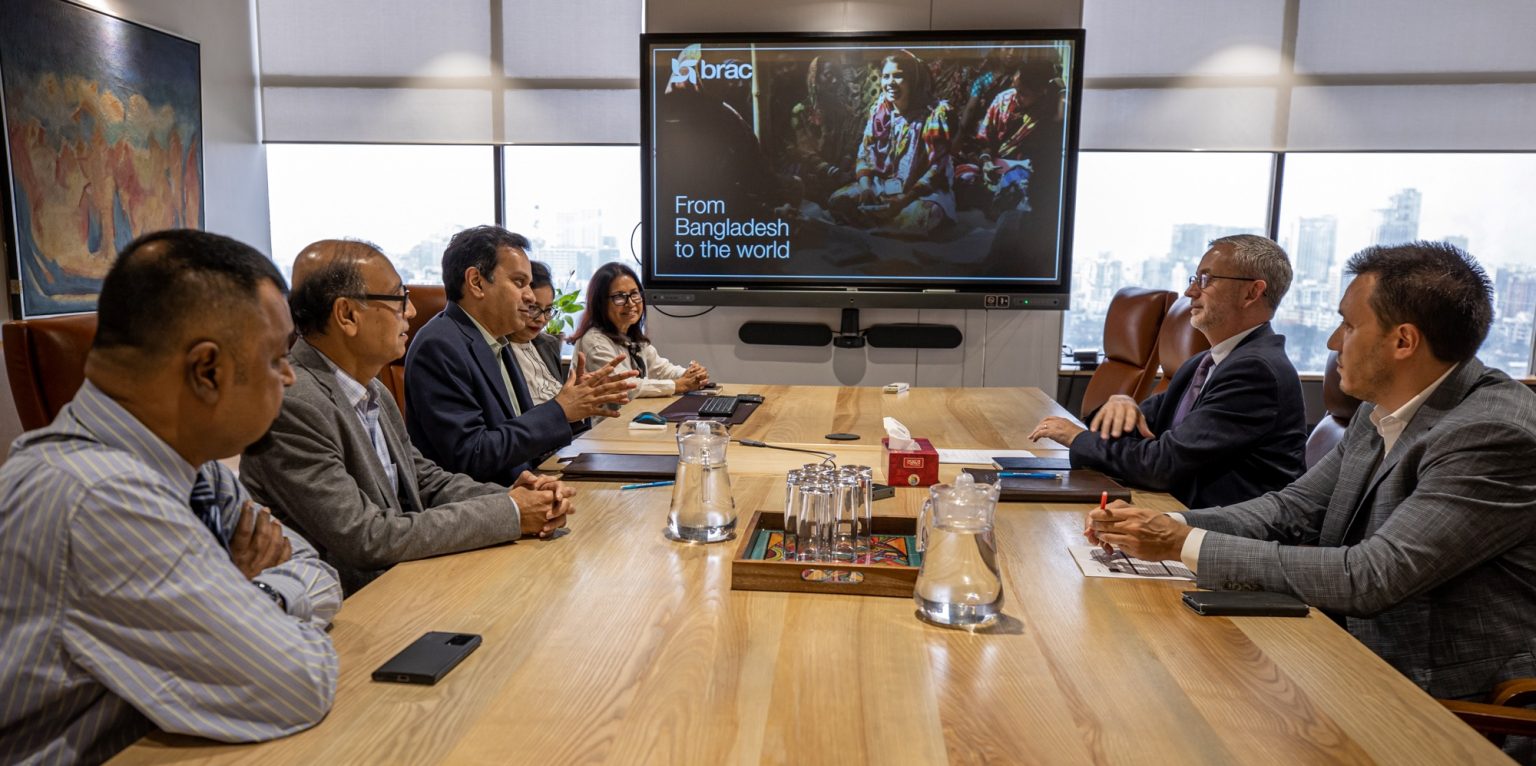BRAC and the European Union have signed an agreement to jointly launch a two-year initiative aimed at strengthening the integrated humanitarian response in Cox’s Bazar, home to one of the world’s largest protracted refugee crises.
The agreement, formalised at a ceremony held at the BRAC Centre in Mohakhali, was signed by Asif Saleh, Executive Director of BRAC, and Michael Miller, Ambassador of the European Union to Bangladesh. Senior representatives from both organisations attended the event, reflecting strong bilateral commitment to supporting both Rohingya and host communities.
Titled “Humanitarian-Development Coexistence Nexus to Address the Rohingya Crisis in Cox’s Bazar,” the initiative will focus on enhancing cost-effectiveness, efficiency, community empowerment, and Accountability to Affected Populations (AAP). With a funding commitment of EUR 4.45 million (approx. BDT 62 crore), the project is set to reach over 125,000 Rohingya refugees and 2,500 host community members, with emphasis on women, youth, and persons with disabilities, said a press release.
Now in its eighth year, the Rohingya displacement crisis continues to strain local infrastructure and services in Cox’s Bazar. The new project addresses growing challenges such as funding shortfalls, parallel service systems, and social tensions by promoting a nexus approach that bridges humanitarian and development assistance.
“This agreement reflects our shared vision for a coordinated, inclusive, and sustainable response to the ongoing crisis,” said Asif Saleh.
Ambassador Miller said: By combining humanitarian and development actions, we aim to build resilience and foster peaceful coexistence between communities.
Spanning 24 months, the programme will support local capacity-building, participatory development, and the delivery of integrated services. Organisers hope the project will serve as a replicable model for similar long-term displacement contexts around the world.
The signing signals renewed momentum in addressing the complex needs of refugees and host communities in Bangladesh while upholding dignity, inclusivity, and long-term resilience.


